The EU affairs project takes you inside the negotiations of the laws that affect us all. We publish stories that get to the heart of EU decision-making and explain how political agreements inked in Brussels matter to ordinary Europeans.
Confidential documents obtained by Investigate Europe reveal how France and the Netherlands, along with Denmark, Malta, Czech Republic and others pressured negotiators to include stricter measures in the Migration and Asylum Pact. Campaigners and the United Nations said such policies could violate the UN convention on the rights of the child, signed by all EU countries.
The reforms, which have been fought over for years but could now be passed by April, would give states greater powers over migration cases and limit new arrivals. An agreement reached by the Council of the EU and European Parliament in December was hailed as “historic” by officials. Human rights groups, however, said it would cause a “surge in suffering” for those seeking to enter Europe.
The deal announced on 20 December came after months of behind closed door talks. The core of the debates took place in the Coreper, a committee of ambassadors from all EU countries who negotiate future laws. Minutes from these meetings obtained by Investigate Europe expose how a host of governments secretly worked to influence and harden the proposals.
At a 15 May 2023 meeting the French representative welcomed a decision to remove age limits on when authorities could detain arriving migrants. “France thanks the EU presidency for abolishing the exemption for minors under the age of 12 and their families.” The Netherlands, Denmark and Czech Republic were also early supporters of the French stance, according to Coreper minutes accessed from May until December 2023.
An 18 December meeting noted that at least 11 member states “continue to reject a general exemption of minors”. At a meeting a month earlier, Malta said excluding minors from the border procedure was “impracticable due to the susceptibility to abuse (claiming to be a minor) and is therefore viewed with great scepticism.” The Dutch position was similarly explicit: “Netherlands rejects blanket exemptions from the border procedure for minors and their family members”. 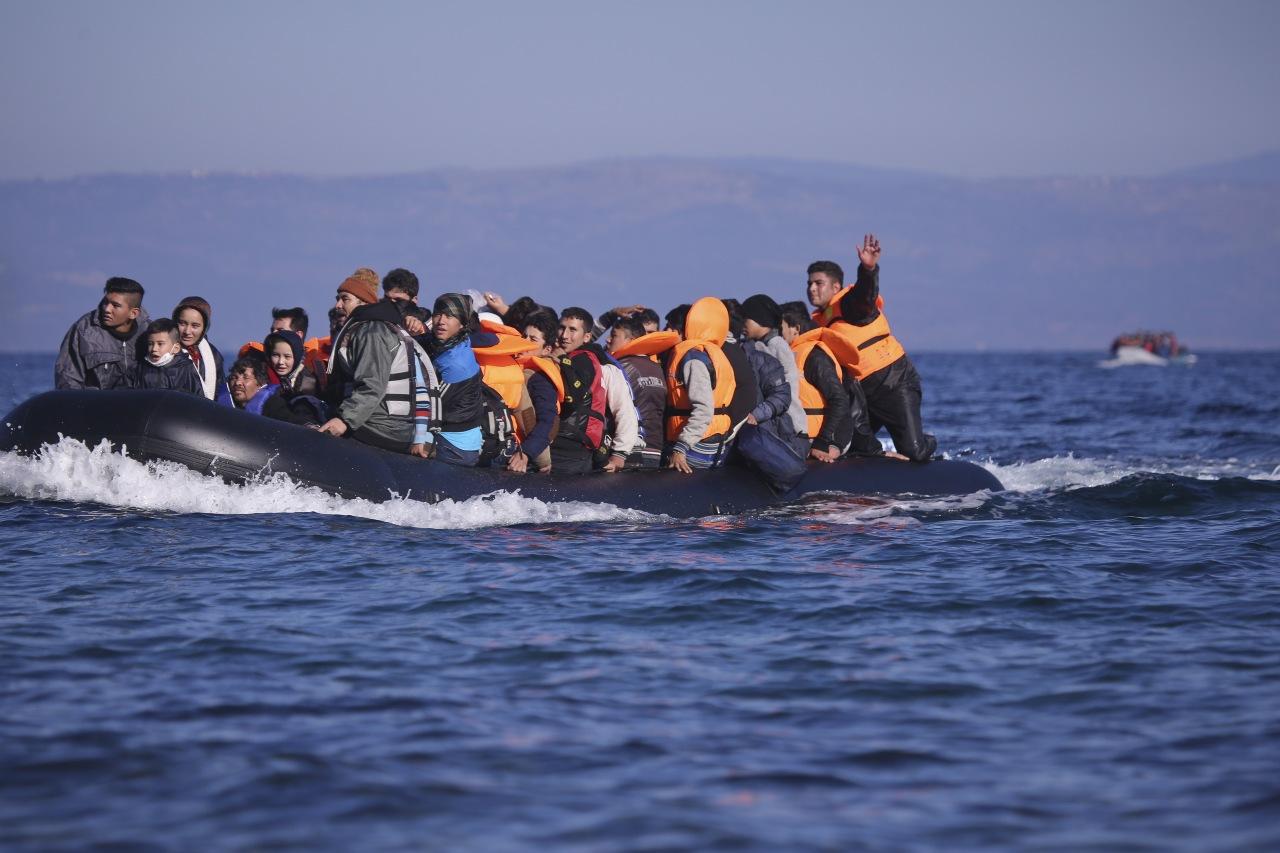
New EU migration laws could legally allow states to detain children at border facilities. Credit: Shutterstock
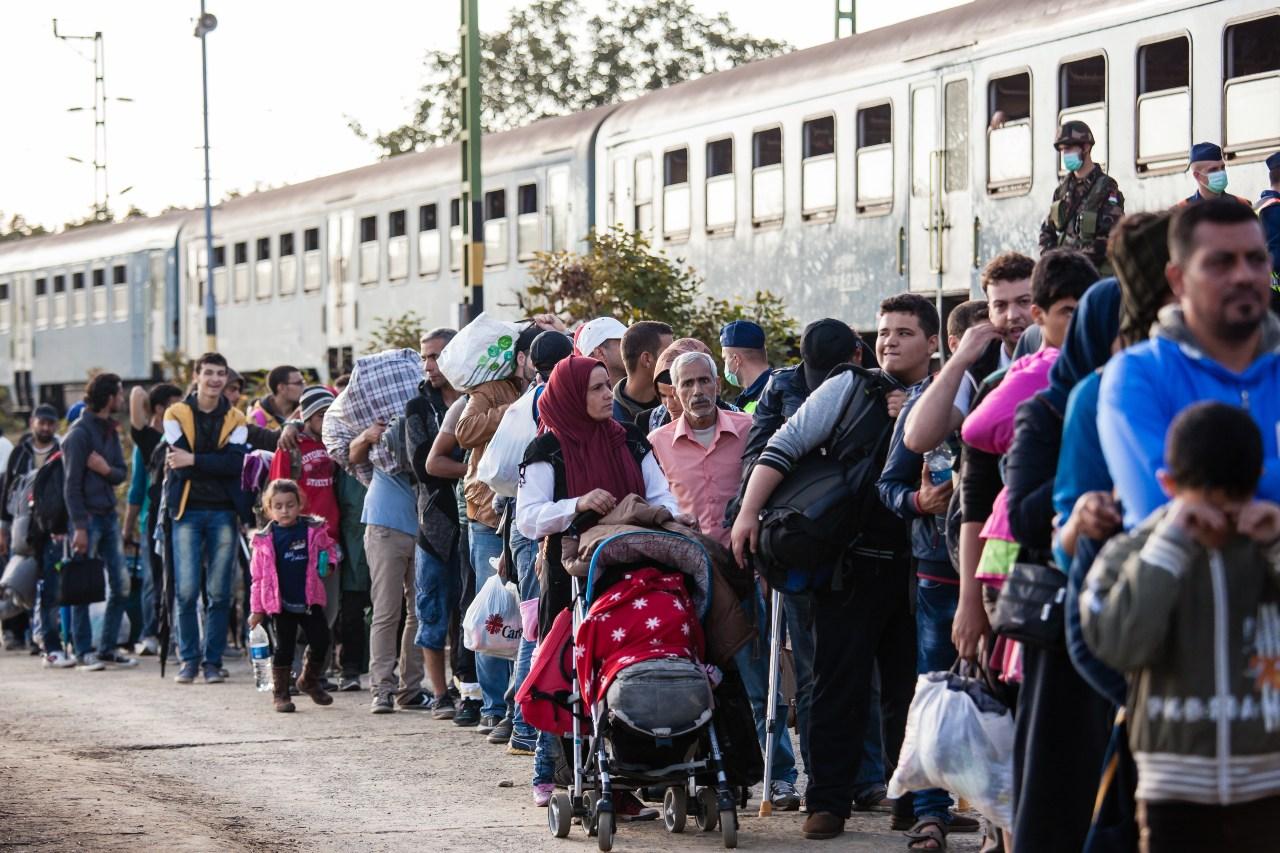
A majority of countries want stricter regulations to limit the number of migrants coming to Europe. Credit: Shutterstock
Germany, however, said removing the exemption was “not acceptable”. Portugal, Ireland and Luxembourg expressed similar concerns, with a representative for the latter saying: “The detention of children is completely out of the question”.
But in the proposal agreed in December those fears were ignored. The text, a copy of which has been obtained by Investigative Europe, will be presented to the EP Civil Liberties Committee on 14 February and finally voted on by MEPs in March or April. If approved, families with children of any age could be legally detained at border centres with adults for months while asylum claims are processed.
“This is the generalisation of the hotspot system,” said Federica Toscano from Save The Children Europe. Such holding facilities, used widely in Greece and Italy, have been condemned for overcrowding, inadequate services and crime. “This system, with the mixing of children and adults, has led to the worst violence against minors: rape, assault.”
A Luxembourg government spokesperson said that “in the interests of compromise” they ultimately supported the texts, adding: “We hope that the package as a whole can bring about the necessary improvements on the ground, with new rules that are respected by everyone”. Sweden also supported the inclusion of the clause.
Portugal’s secretary of state for migration and asylum was pragmatic in her assessment. “This is not the migration pact we would like to have. It’s what’s possible,” said Isabel Almeida Rodrigues, hoping that changes may yet arrive. “We’ll see what happens from now on, a lot is still open. It’s good that it is.”
A spokesperson for the Dutch government said they supported the clause in part to help identify people who have little chance of being granted asylum. “NL has pleaded for the inclusion of this group, to prevent attempts to evade the procedure may result in migrants bringing their children on their journey to the EU.”
The governments of France, Denmark, Malta, Czech Republic and Germany did not respond to requests for comment by the time of publication. 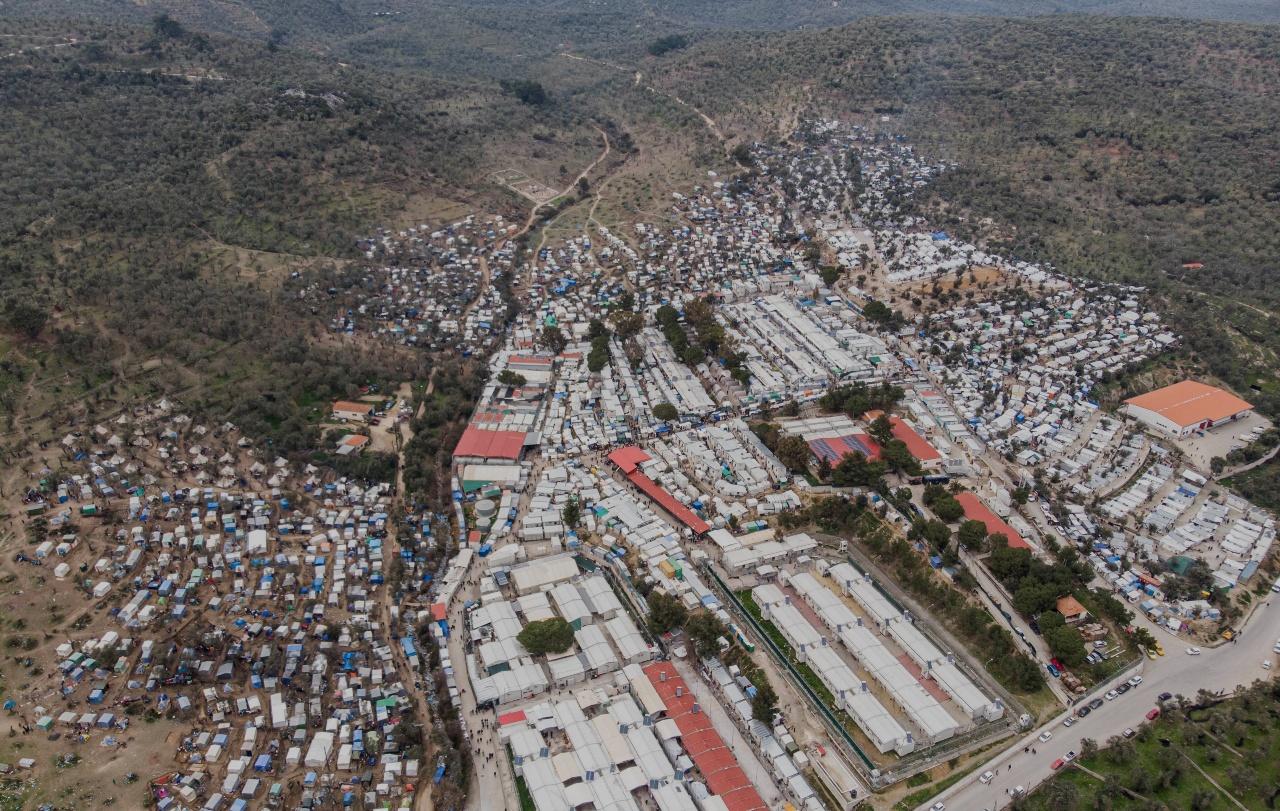
The Moria ‘hotspot’ facility in Lesbos once housed thousands of adults and children arriving to Greece. The site burnt down in 2020.Shutterstock
Children arriving alone at borders could also be adversely affected. Today, unaccompanied minors cannot be legally detained – although the practice is alarmingly common. Planned laws state that if they represent a “danger to national security” – a decision determined by individual states – unaccompanied children could be held at border facilities for up to three months.
France again was a driving force. “Exempting unaccompanied minors from border procedures represents a major risk for the protection of our borders”, its representative said at the 15 May Coreper meeting, adding that an exemption could embolden “the trafficking of minor migrants”. The numbers of unaccompanied minors coming to Europe is increasing. Around 25,000 arrived in 2021 and this had risen to 39,000 in 2022, according to Eurostat.
Moreover, if a child is suspected of providing “misleading information”, comes from a “safe country” or where the proportion of people granted asylum is 20 per cent or less their claim could now be accelerated by states. This could increase the chance they are swiftly returned to their country of origin.
For example, children from Tunisia, Turkey, Albania, India or Serbia, whose countries are considered safe. “One cannot generalise on asylum,” explained lawyer Gianfranco Schiavone from the Association for Juridical Studies on Immigration in Italy. “There can be a young Tunisian fleeing from violence or torture suffered in his own country, even if it is theoretically ‘safe’. Asylum must be analysed on a case-by-case basis.” 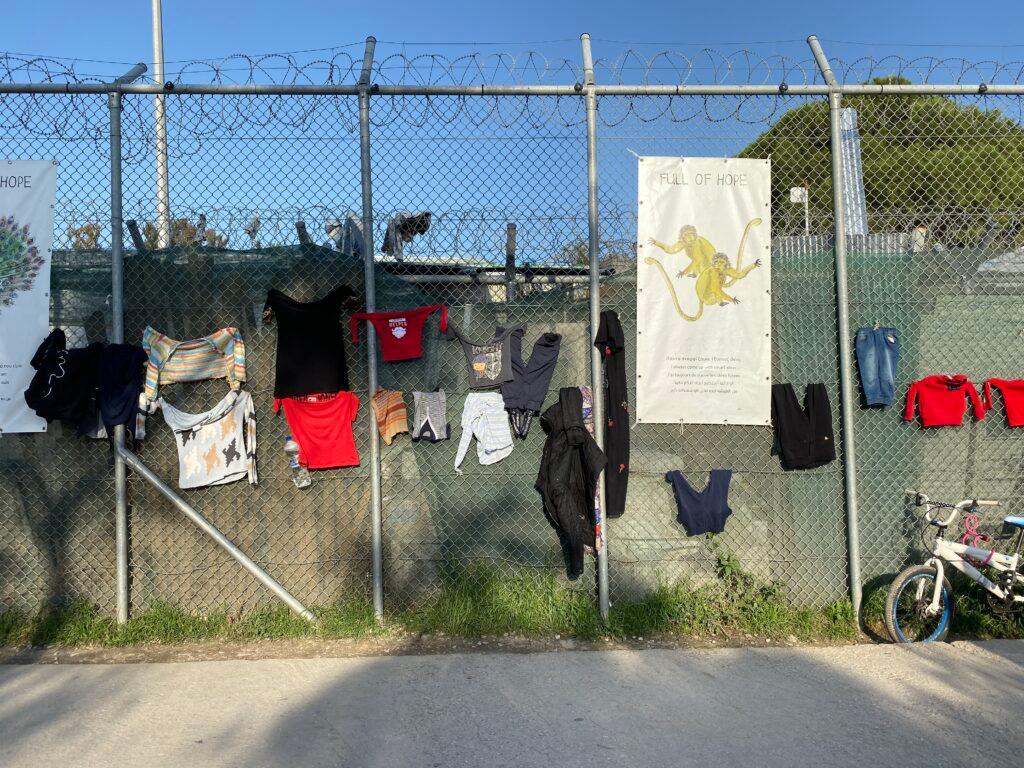
Children’s clothes hang on barbed wire fencing at the Moria refugee camp. Credit: Investigate Europe
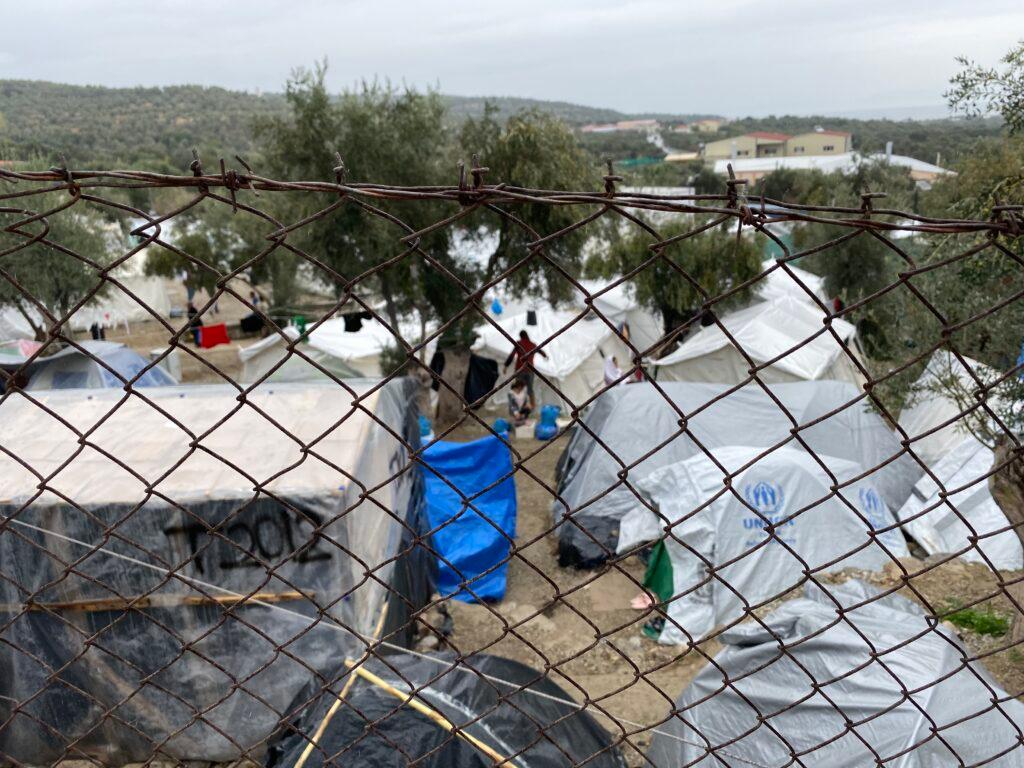
The Moria settlement pictured months before it was destroyed in a fire, 2020. Credit: Investigate Europe
Toscano said that the amendments represent a “historic breach in the international protection afforded to children.”
“These provisions are a disaster,” said Damien Carême, a Green MEP and shadow rapporteur for one of the pact’s five regulations and involved in the final trilogue negotiations. “There’s total opacity, we were summoned at 11.40pm to negotiate, it was postponed to 1.30am, 3.30am, then at 6.30am we were handed the text on the table, without having a say in the matter.” Carême called the current text “inhumane” and said the lobbying was an effort to garner public support ahead of European elections in June.
A representative from Spain, which held the EU presidency until December, urged Coreper members in July to put their “dissatisfactions” aside, stressing the need for an agreement before the European elections. “We also had to finish before Hungary took over the EU presidency (July 2024). But at the same time, we were up against a wall, and every time we were told “No, there’s no room to negotiate,” a parliamentary source present at the meetings said.
On 15 December, the UN Special Rapporteur on Migration, Gehad Madi, wrote to the three presidents of the European institutions, Ursula von der Leyen, Roberta Metsola and Charles Michel. He told them that the pact was contrary to the UN convention on the rights of the child, which stipulates that a child is defined as “every human being below the age of 18 years”. And insists that the detention of children because of their migrant status is a violation of their rights. 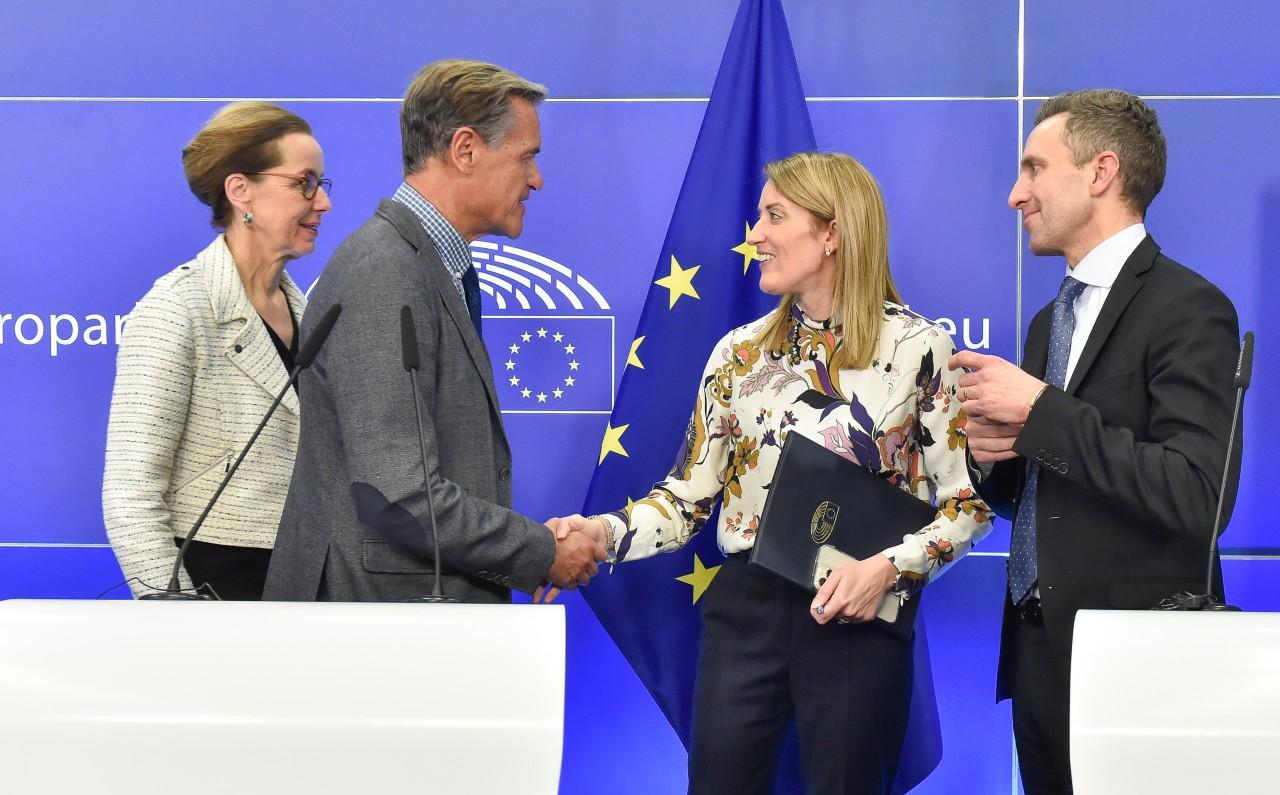
European Parliament president Roberta Metsola at a 20 December press conference announcing the migration pact agreement.European Union
A provision for biometric fingerprinting, from the age of six, has also been included. At present, the fingerprints of arriving migrants and asylum seekers can not be taken under the age of 14. Significantly, the proposed text would allow for the use of “coercion” against children who refuse to have their data taken.
“It is a vague concept,” Save The Children’s Toscano said. “There is no definition of this word in the text, but any form of coercion on minors in migration procedures is a violation of their rights, which all European states have an obligation to protect.”
The Netherlands said the measure would help keep track of “vulnerable young migrants and better prevent them from… becoming victim of human smuggling networks,” adding that any use of coercion would be a last resort and must respect “dignity and physical integrity”.
Investigate Europe was unable to obtain the Coreper minutes where biometric fingerprinting was discussed and so it is unclear which states also pushed in this direction.
A European Commission spokesperson said, “a proportionate degree of coercion” should only be used “as a last resort”. On the pact, the spokesperson said states must always consider the best interests of the child and respect international treaties. “Member States should take due account of the minor’s well-being and social development, including their background.”
“Any form of coercion on minors in migration procedures is a violation of their rights.”
— Federica Toscano, Save The Children
Another contentious point is the exclusion of siblings from the “family” framework, which now only covers parents and children. In concrete terms: if a child arrives in Europe, for example with an uncle, they will now not be able to join their brothers and sisters who are already EU residents. France, the Netherlands, Hungary, Denmark, Sweden and others backed this amendment, Coreper minutes show.
“This was the most difficult battle,” said a parliamentary source who took part in the final negotiations. “We tried to include siblings in the text on several occasions, but the Council systematically withdrew them. They did so right up to the last day. In the end, however, they succeeded in getting unaccompanied minors included, who will be able to join their brothers and sisters, unlike those travelling with their families. It’s absurd.”
Civil society groups are also dismayed by the current proposals. French NGO Cimade, which defends the rights of refugees and migrants across Europe, summed up the unease. “Every time we think we’ve reached the bottom of inhumanity, but in fact we’ve sunk even lower.”
This article is part of EU under pressure, an Investigate Europe series examining major issues ahead of European elections in June 2024.
Editor: Chris Matthews
Cross-border stories from a changing Europe, in your inbox.Cross-border stories from a changing Europe, in your inbox.
Source link : https://www.investigate-europe.eu/posts/europe-migration-pact-child-detention-lobbying-france-netherlands-eu
Author :
Publish date : 2024-02-12 08:00:00
Copyright for syndicated content belongs to the linked Source.


